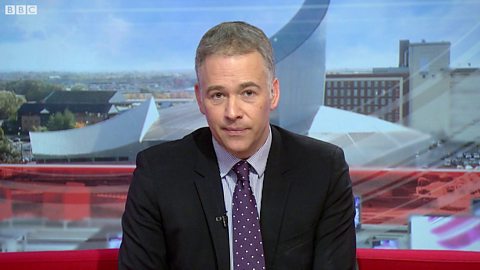Whether it’s going to be raining or the sun will be shining, people are always fascinated about what the weather is going to throw at us.
I’m Ben Rich, I present the weather on BBC TV, radio and online and we are here at the BBC Weather Centre, where all of our forecasts begin.
First we gather all the information we need to put the forecast together.
We look at satellite data, it shows us where we’ve already had cloud; radar data shows us where it’s been raining; we look at the temperatures as they are now; and then we look at the forecasts the computer models, the computer forecasts of what is going to happen over the coming days. And taking all of that information, putting it together, we can turn that into a weather forecast.
Once we’ve collected all the information we need, it’s time to present the weather forecast, and this is one of our studios here at the Weather Centre where we present our broadcasts.
This studio has a big screen behind me.
So I can look at the screen, I can see where the weather is moving and it’s easy for me to interact with the graphics to help me tell the weather story.
TOP TIPS FOR WEATHER REPORTING
TIP 1: Know your audience
So my top tips for presenting and reporting the weather are, first of all, know your audience and what they are going to want from the forecast.
Now here, most of the time, our audience is in the UK; people going about their daily lives, going to work, trying to get out and about at the weekend.
We are trying to give them the information they need to make decisions.
So, how cold will it be? Will it be warm? Will it be sunny? Will it be cloudy? And most crucially, a lot of the time, is it going to rain?
TIP 2: What is the main message?
What is your big story? Is there a storm coming? Is there ice that is going to cause travel problems? Will rain lead to flooding? What’s the main message? What is the top line for your weather bulletin?
TIP 3: Make it easy to understand
Put your bulletin together so it is easy for the audience to understand. I start by choosing a good picture that reflects the weather that we are seeing today.
Then a headline, the top line, that big message you want to get home to the audience.
Make sure your story has a beginning, middle and an end, so no matter how long your weather broadcast is; hopefully people will stay interested and will stay with you to the end, getting all those key messages.
TIP 4: Make it interesting Make it interesting.
Smile. Tell the story in a way that people are going to find interesting. A way the audience are going to stay with you for however long your weather broadcast is. Vary the tone and the speed of your presentation so people will stay with you and hopefully get all those key messages.
TIP 5: Enjoy it and have fun
Enjoy it and have fun. This is a great job. I love presenting the weather. It’s brilliant because you get to interact with the graphics behind you; you get to think about some of the science while also delivering an important message for people at home. So make sure you have fun while you are doing the weather.
TIP 6: Make sure you are ready to go
Make sure you are wearing a microphone before you start doing the broadcast.
Because once I forgot to put my microphone on and they came to me, they cut to me from the news and I started talking.
I think I had come up with quite a funny line to get me into the weather and unfortunately no one could hear me.
In my ear piece, they told me, “You’re not wearing a microphone”. I tried to get the microphone from beside me over here, but unfortunately, all the wires had got tangled up and it was one of most embarrassing moments of my career.
Now, it never looks as bad as you think it does on screen, but take my advice, make sure you are all ready to go before you start trying to do the weather.
Those are my top tips for presenting the weather and remember you can make your weather forecast local to your area, to your school even. Think about the audience where you are.
And most of all enjoy yourself doing the weather on BBC School Report.
Whether the sun is shining, it’s pouring with rain or there are storms predicted, everyone wants to know what weather is on the way.
Weather reports have been broadcast on the BBC for over 90 years.
The first forecast with the presenter on screen, was seen on BBC TV more than 60 years ago when they used hand-drawn charts to show weather systems.
Technology has moved on a lot since then, with green screens and satellite images, but people still want to find out what the weatherhas in store.
BBC Weather presenter Ben Rich shares his tips for putting together a weather forecast:
- Know your audience
- What is your main message?
- Make it easy to understand
- Make it interesting
- Enjoy it and have fun
- Make sure you are ready to go
Watch the video, download the guide to reporting the weather, and then have a go at making your own weather forecasts.

Online storytelling tips from award-winning YouTuber, Jessica Kellgren-Fozard. video
Award-winning YouTuber, Jessica Kellgren-Fozard tells us a how she honed her craft and what the secret is to being a great online storyteller.

Tips on storytelling and making a documentary from Mim Shaikh. video
Mim shares his experiences and advice about how he told his story and made a documentary.

Storytelling in video games with Rhianna Pratchett. video
Rhianna Pratchett explains exactly what it takes to tell a good video game story and what you need to do to get started.

Observational storytelling tips from comic Suzi Ruffell. video
Acclaimed comic Suzi Ruffell explains how she's been delighting audiences with her own brand of observational storytelling for over a decade.

Top tips for filming on a smartphone. video
Film-makers are producing documentaries and feature films on smartphones, and you can do the same
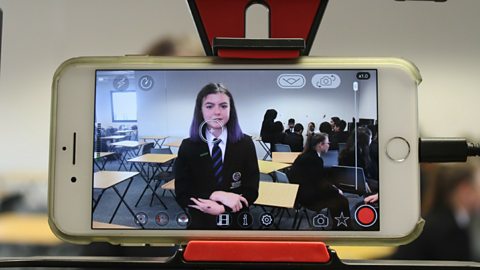
Finding news tips with Steph McGovern. video
Journalist and presenter Steph McGovern delivers a masterclass on how to find news stories.
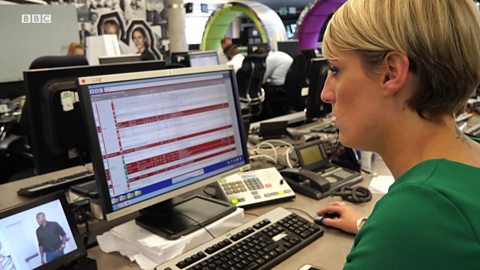
Making news for radio and podcast with Ngunan Adamu. video
Making a report for radio or a podcast isn’t quite the same as making something for TV or the internet.
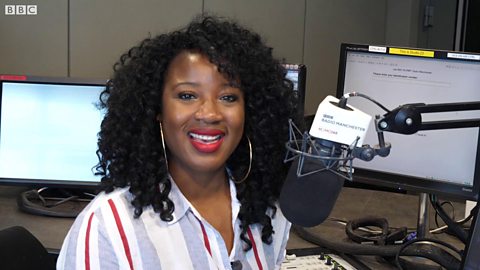
Tips from sporting presenter Jessica Creighton. video
Covering sports stories means more than just knowing the rules of the game and the names of the players.
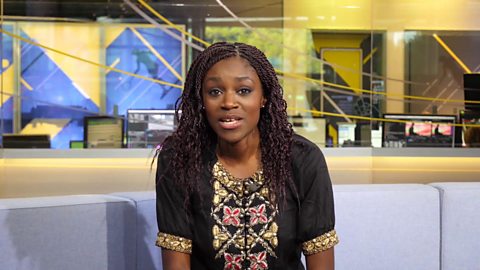
News presenting tips with Roger Johnson. video
Insights into news presenting from Roger Johnson, presenter of the BBC regional news programme North West Tonight and BBC Breakfast at the weekend.
